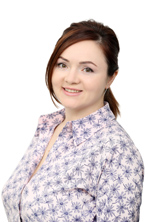Sepsis - what kind of disease is it: diagnosis, treatment, prognosis
Sepsis is damage to the body by pathogenic microorganisms that have entered the blood. It can be caused by streptococci, staphylococci, pneumococci, Escherichia coli and other bacteria, as well as viruses, fungi and protozoa. Most often, sepsis is a complication of an inflammatory process (for example, a wound). In the development of purulent sepsis, an important role is played by a decrease in immunity due to surgery, large blood loss, or a serious illness.
The source of infection can be any foci of infection in the body. The cause of surgical sepsis is wound suppuration.
For the development of sepsis, the connection of the primary cell with blood or lymphatic vessels is necessary. The occurrence of secondary septic foci is recognized by the type of pathogen and the location of the primary foci. The main cause of sepsis is the systemic inflammatory response syndrome. This is the body's reaction to the action of several strong stimuli (injuries, operations, etc.).
Symptoms of sepsis in adults
Sepsis - what kind of disease is it? Pathology is manifested by a violation of the general state of the body. Secondary foci of infection may also occur.
Symptoms of sepsis in adults:
- headache;
- confusion of consciousness;
- temperature rise to 39-40 degrees;
- tachycardia;
- lower blood pressure;
- edema;
- constant weight loss;
- thrombosis.
With severe sepsis and septic shock, a violation of the blood supply to certain organs and tissues is noted. Septic shock is more common in children, the elderly, and people with immunodeficiency. Multi-organ failure in sepsis (develops when many organs are affected - the so-called multi-organ sepsis) ends in death in 25-45% of cases.
The clinical course of the disease is rapid (1-2 days), acute (up to 1 week), subacute (more than 1 week), chronic. In case of sepsis, there may be dullness or atypicality of symptoms. With the development of sepsis in newborns, vomiting, diarrhea, rapid weight loss are observed, suppuration in the navel area, abscesses and phlegmons of various localization may appear.
Complications of sepsis include hemodynamic, respiratory, renal, neurological, cardiac disorders. 10-30% of patients with sepsis have thrombocytopenia of unknown etiology. Read more about the complications of this pathology on our website Dobrobut.com.
The diagnosis of sepsis is based on the analysis of symptoms and laboratory data (isolation of the causative agent and determination of its sensitivity to antibiotics, procalcitonin test, blood and urine tests).
Sepsis: clinical guidelines
Treatment of sepsis is carried out in intensive care units or intensive care units. Sanitation of the source of infection is necessary - for example, opening an abscess, removing pus and dead tissue in the area of inflammation.
Etiotropic therapy is carried out as early as possible. To identify the causative agent and determine its sensitivity to antibiotics, broad-spectrum antibacterial drugs are prescribed. If the primary site of infection is not established, it is taken into account whether it is an infection outside the hospital or hospital. For community-acquired infection, the drugs of choice are cephalosporins of the III and IV generations, fluoroquinolones. Carbapenems are prescribed for hospital infections. Important: it will be necessary to introduce high doses of antibiotics in long courses to create the necessary concentration of the drug in the blood and in the foci of infection.
In case of sepsis, clinical recommendations in the treatment of patients with anaerobic infections are the use of metronidazole and lincosamide antibiotics. In case of staphylococcal sepsis, anti-staphylococcal immunoglobulin is administered. Etiotropic treatment is carried out until the symptoms of infection disappear and the patient's condition shows stable positive dynamics.
Primary measures for sepsis include infusion therapy. It contributes to the correction of tissue perfusion and homeostasis, the normalization of cellular metabolism, and the reduction of the concentration of toxic metabolites.
In case of emergency conditions arising from sepsis, additional measures may be required:
- artificial lung ventilation;
- hormone therapy;
- therapy of acute renal failure;
- control of blood glucose level;
- support of cardiac activity;
- prophylaxis of deep vein thrombosis.
Neonatal sepsis
In newborns, sepsis develops against the background of intrauterine infection. The entrance gate is usually the umbilical wound. It is possible to penetrate the infection through the organs of breathing, hearing, skin, gastrointestinal tract. There are rapid (1-7 days), acute (1-2 months) and protracted (more than 2 months) course of sepsis.
Treatment of sepsis in newborns is aimed at suppressing the causative agent, remediating purulent foci, increasing the body's defenses. Antibacterial therapy is carried out taking into account the sensitivity of the causative agent to the antibiotic, the maximum age is prescribed
doses for 3-4 weeks. If the sensitivity of the causative agent to antibiotics is not determined, the therapy is carried out with broad-spectrum antibiotics. To prevent the development of dysbacteriosis, probiotics are prescribed.
Also held:
- detoxification therapy;
- immunocorrection;
- correction of acid-alkaline balance;
- antishock therapy;
- restoration of water and electrolyte balance.
The prognosis after neonatal sepsis depends on the general condition of the child. The risk of death in premature babies with low body weight is 2-4 times higher. The overall mortality in the early development of sepsis is from 3 to 40%. Mortality from late-onset sepsis depends on the etiology of the infection.







